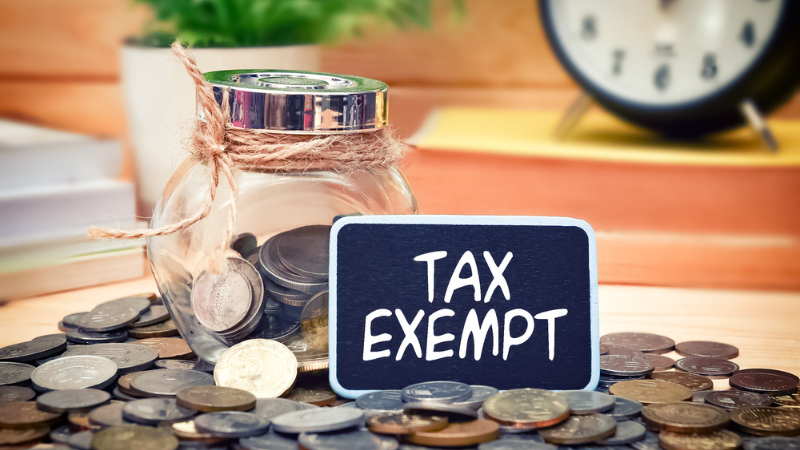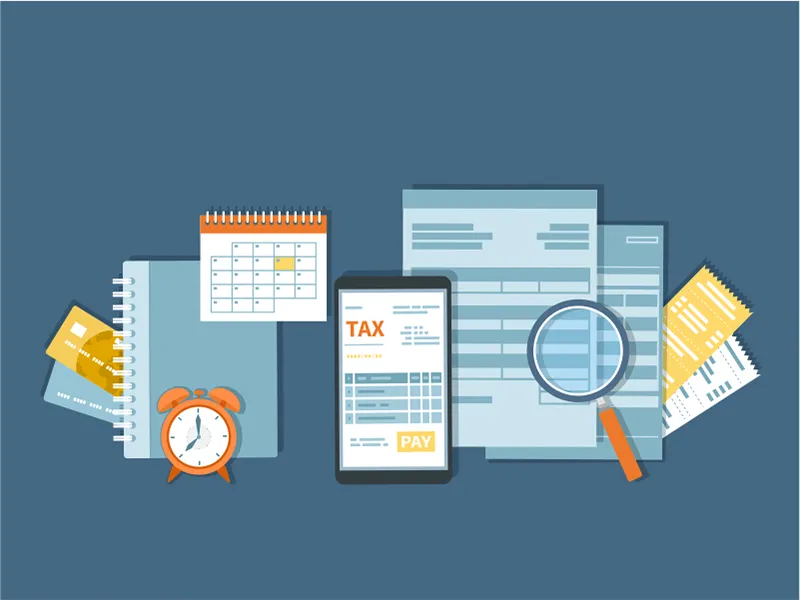
The field of taxes can be rather confusing for a layperson – the jargon, complicated concepts, and numbers can be rather off-putting. This article seeks to demystify one such concept for the readers, with the hope that their fear and aversion related to taxes will diminish just one bit after reading this.
Definition of Advance Tax
Advance tax implies that the income tax must be paid in advance instead of a lump sum payment at the end of the year. Also, known as pay as you earn tax, advance tax is usually paid in installments.
Which groups have the option of paying advance tax?
The persons who are liable to pay advance tax are provided under Section 208 of the Income Tax Act.
- Salaried persons
- Freelancers
- Business persons – however a senior citizen older than 60 years are exempt from advance tax.
- Presumptive income for businesses (as per section 44AD) – taxpayers have the option of paying total tax liabilities by 31st March of a particular year.
- Presumptive income for professionals (as per section 44ADA) – taxpayers have the option of paying total tax liabilities by 31st March of a particular year.
- Also, please note, an NRI, who has an income accruing in India exceeding Rs. 10000 is liable for payment of advance tax.
Calculation of Advance Tax
The advance tax is to be arrived at as follows –
- The income tax on estimated total income devoid of relief under Section 87A (Rebate available when your income is under Rs 500000) will give one the income tax amount after relief under Section 87A of the Act.
- This amount is to be added to the surcharge on the estimated income to arrive at the tax liability. Thereafter, education cess, SHEC must be added to the tax liability to get the total tax liability.
- The relief other than the relief under Section 87A and the TDS must be removed from total tax liability to gauge the advance tax liability.
- While making all these calculations, the income tax slab rate must be kept in mind.
Due dates for payment of Advance Tax
- As applicable for both individual and corporate taxpayers
| Due date | Advance tax payable | Amount (Rs) |
| 15th June | 15% of Advance tax | 4,700 |
| 15th September | 45% of Advance tax | 14,100 |
| 15th December | 75% of Advance tax | 23,600 |
| 15th March | 100% of Advance tax | 31,400 |
- For taxpayers who have opted for Presumptive Taxation Scheme under section 44AD & 44ADA
- Business Income payable on or before 15th March, 100% of advance tax is payable.
Advance tax deadlines for FY 2022-23
The table below highlights deadlines for filing advance tax for FY 2022-23, for both individual and corporate taxpayers:
| Due Date | Advance tax percentage |
|---|---|
| On or before 15th June | 15% of advance tax |
| On or before 15th September | 45% of advance tax less advance tax already paid |
| On or before 15th December | 75% of advance tax less advance tax already paid |
| On or before 15th March | 100% of advance tax less advance tax already paid |
The deadline applicable for those taxpayers who have opted for Presumptive Taxation Scheme under sections 44AD & 44ADA – Business Income –
| Due Date | Advance tax percentage |
|---|---|
| On or before 15th March | 100% of advance tax |
When Should Advance Tax Be Paid?
If your tax liability after reducing TDS is more than a sum of Rs.10,000 annually, then one will be liable for payment of advance tax. Advance tax must be paid using Challan 280 like other tax payments.
Forms Required For Payment of Advance Tax
The forms that are to be submitted along with Challan 280 are as follows
a. PAN details
b. Assessment year details
c. Type of payment.
Exemption in Advance Tax Payments
Senior citizens aged 60 years and above are exempted from paying the advance tax. Salaried individuals falling under TDS net are also exempted from paying the advance tax. In case, TDS deducted is higher than the tax that is payable for the year, then there is no need to pay advance tax.
Can deductions be made for Payment of Advance Tax?
You can claim deductions under Section 80C of the Income Tax when it comes to payment of advance tax.
Penalties on non-payment of Advance tax
Any non-payment of advance tax can result in a penalty interest under Sec 234 B and 234C will be charged. It is calculated at the rate of 1% on the amount due per month.
What are the advantages of paying advance taxes?
It is observed that paying advance taxes provides a continuous flow of income to the government. It reduces year-end burden of tax payment for the income tax assessee. The tax collection process is hastened. The defaulting in payments is reduced. One can even check if the advance tax payment has been duly made using Form 26AS (Tax credit).
What is the process of online filing of ITR? How can one claim advance tax while filing ITR?
When you opt for online tax filing under the ‘Prepare and Submit’ option. It is then that the details will be pre-filled and so will the advance tax payment details will be pre-filled. One just has to check the information given and proceed accordingly.
If the same has to be done offline, then one has to select the Offline ‘Download and Prepare’ option and fill in the details manually. Under item 21 ‘Details of the Advance Tax and Self-Assessment Tax payments’, details will have to be filled in the challan. The details would include, the BSR code, the date of deposit, the serial number of the challan, and the tax paid.
Understanding the nitty-gritty of taxes (and when to pay them) is crucial as failure to pay your taxes on time can result in significant legal ramifications and even imprisonment. Calculating whether you need to pay advance tax can also help you plan your finances in a more effective manner.
Process to pay advance tax online
To pay advance tax online, follow these steps:
- Go to the Tax Information Network of the Income Tax Department of India website.
- Select ‘Proceed’ under the CHALLAN NO./ITNS 280 option.
- Enter the applicable tax amount, payment type, mode of payment, PAN, assessment year, and other details mentioned in the challan.
- Review all the entered data before submission.
- You will be redirected to the bank’s website to complete the payment.
- Once the payment is completed, you will receive a tax receipt on the next screen, which will contain payment details such as the BSR code and challan serial number.
- Save a copy of this tax receipt for future reference, as you will need to enter the BSR code and challan number in your tax return.
Frequently Asked Questions
In order to make tax compliance easier for senior citizens, the tax exemptions are available to senior citizens, if the following conditions are fulfilled –
a. The taxpayer is more than 60 years of age
b. The individual is a resident of India
c. A taxpayer does not hold any income under the head ‘business or profession’
The mode of payment of advance tax is either in the form of internet banking or through a challan. The payment can be made online through the National Securities Depository Ltd. Website.
In case the tax liability is more than the advance tax paid, the amount will be refunded. Say, the advance amount is more than 10% of the tax liability, then an interest of 6% per annum will be paid by the Income Tax Department.
The excess amount paid as advance tax can be refunded by submitting Form 30 to the Income Tax Department. The said claim has to be made within a period of one year from the assessment year.
NRIs are required to pay advance tax if the accruing income is in excess of Rs. 10,000.
Non payment of advance tax will result in levy of interest under Section 234B and Section 234C of the Income tax Act, 1961.


























